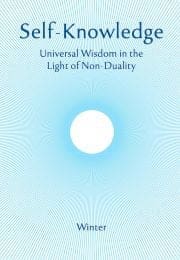Giordano Bruno, Friend of Truth
It is precisely among the heretics of every age,’ wrote Albert Einstein, ‘that we find men who were filled with the highest kind of religious feeling, and were in many cases regarded by their contemporaries as atheists.’ These words are well applied to Giordano Bruno, the Italian philosopher and poet, who was burnt at the stake in Rome in 1600. To the onlooking crowd, Bruno was a monster, a man who hated God, an impenitent heretic; the world was best purged of him and his writings. Thankfully, most of the writings have survived and allow Bruno to speak for himself. They reveal not only a rich and creative personality but also a mind rooted in love of the divine.
Bruno, born at Nola in the Kingdom of Naples in 1548, lived in the age of the Reformation. It was a time of religious conflict sometimes degenerating into wars of religion. Italy was safe Catholic territory, but its rulers were anxious to prevent the infiltration of Protestant ‘heresies’, and to this end, the Inquisition was established in Rome in 1549.
In his writings, Bruno has depicted himself as a thoughtful child, unwilling to take things at face value. Amusingly, he has related how his parents first taught him philosophy. The ‘parents’ were the two mountains that dominated his youth, Mount Cicala, the playground of his childhood, and the distant, volcanic Mount Vesuvius. One day, while contrasting the beauty of the flower-laden slopes of Mount Cicala with the apparent bareness of Vesuvius, Cicala spoke up, and told the boy not to trust to appearances. Instead he should go to ‘Brother Vesuvius’ and see for himself. Sure enough, a close look revealed that Mount Vesuvius too was carpeted with flowers, and was not at all grey and bleak. To complete the revelation of the trickery of the senses, the child gazed back at ‘Brother Cicala’, which also looked barren and uninviting when viewed from afar. Bruno concludes: ‘Thus his parents taught him to put all things to the doubt.’
It was probably the thirst for education, rather than a sense of vocation, that led Bruno, aged seventeen, to join the Dominican friars, one of the holy orders of the Roman Catholic Church. He was admitted to the great convent at Naples, where St Thomas Aquinas was buried. For some years, it appears that Bruno—now Brother Giordanus—was an ideal friar. Brilliant and studious, he was ordained priest in 1572 and three years later gained his doctorate in theology. He mastered the Dominican methods of memory training and was called to Rome to give the Pope a display of his powers. His literary talent emerged in an allegorical work, now lost, which was dedicated to the Pope. Outwardly it seemed that the Church had gained a loyal and learned son.
But inwardly, Bruno’s condition was as unsettled as Mount Vesuvius on the eve of an eruption. He was putting things to the doubt: the Holy Trinity, the Sacraments, the worship of saints, and the Church’s policy of crushing heresy by force. He was also infused with a burning desire for true wisdom. Later, he told of the spell cast on him by the goddess of wisdom, Minerva:
Her have I loved and sought from my youth, and desired for my spouse. I have become a lover of her form, and I prayed that she might be sent to abide with me, that I might know what I lacked and what was acceptable to God.
Subscribe or enrol for free guest access to read all of this article and Self-Knowledge online.
Already subscribed or enrolled? Log in:


